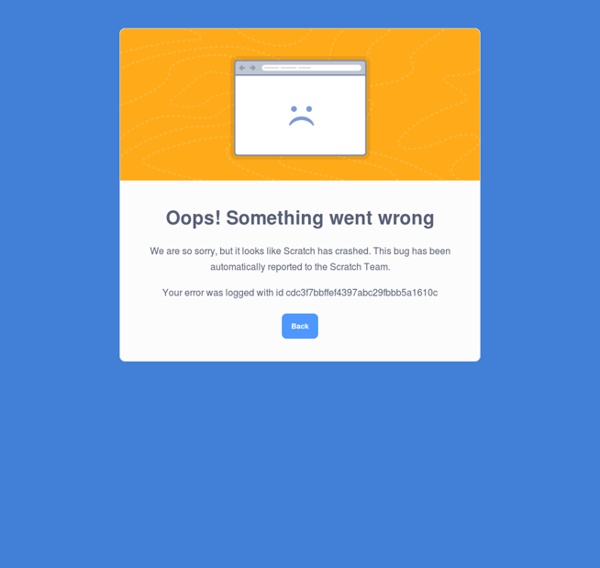



Crear una cuenta en Scratch + Instalar la aplicación Scratch 1.4 SAMR, modelo para integrar las TIC en procesos educativos Generar ambientes de aprendizaje enriquecidos con el uso intencionado, enfocado y efectivo de las Tecnologías de la Información y la Comunicación (TIC), requiere una intervención en las Instituciones Educativas a dos niveles. En el primero de estos se debe asegurar que se cumplen las condiciones planteadas en los cinco ejes fundamentales que, según la FGPU, deben atenderse para lograr transformaciones significativas tanto en la enseñanza de las TIC como en la integración de éstas en procesos educativos. Estos ejes son: 1) Dirección institucional; 2) Infraestructura TIC; 3) Coordinación y docencia TIC; 4) Docentes de otras áreas; y, 5) Recursos digitales. Estos cinco ejes, correspondientes a ese primer nivel institucional, ya han sido abordados en detalle por Eduteka con el Modelo MíTICa: Modelo MíTICa de Eduteka MíTICa es un Modelo que permite a una Institución Educativa poner en marcha procesos graduales en cada uno de sus cinco ejes: Traducción del modelo SAMR (Puentedura, 2006)
Scratch Help - Scratch Help ScratchEd An online community for educators using Scratch, with stories, discussions, and resources, such as the Scratch curriculum guide. Scratch Wiki The Scratch Wiki contains a wide variety of articles by Scratchers for Scratchers, including advanced topics and tutorials. Scratch 2 Offline Editor Download the Scratch 2 offline editor. Scratch 1.4 Download Links and information on the previous version of Scratch. Scratch Statistics Explore up-to-date statistics about the Scratch online community. Scratch and the Physical World Connect your Scratch projects to the physical world with MaKey MaKey, LEGO WeDo, or PicoBoard. Scratch Logo Access the Scratch logo and other media files.
Scratch Offline Editor Beta You can install the Scratch 2.0 editor to work on projects without an internet connection. This version will work on Mac, Windows, and some versions of Linux (32 bit). Scratch Offline Editor Next download and install the Scratch 2.0 Offline Editor Mac OS X - Download Mac OS 10.5 & Older - Download Windows - Download Linux - Download Support Materials Need some help getting started? Starter Projects - Download Getting Started Guide - Download Scratch Cards - Download Updates The Offline Editor can update itself (with user permission). The current version is v432. Older Versions of Scratch If you have an older computer, or cannot install the Scratch 2.0 offline editor, you can try installing Scratch 1.4. Known issues If your offline editor is crashing directly after Scratch is opened, install the Scratch 2 offline editor again (see step 2 above.) Report Bugs and Glitches
Home Entornos Personales de Aprendizaje: claves para el ecosistema educativo en red Páginas: Codrops: Free Responsive Book Social icons Presentación El interés de los Entornos Personales de Aprendizaje (PLE, por sus siglas en inglés) no reside tanto en su novedad conceptual o tecnológica, como en la asunción de una perspectiva sobre la educación que intenta responder al gigantesco cambio tecnológico y cultural que ha tenido lugar en las últimas dos décadas en nuestra sociedad. Esperamos que disfruten su lectura tanto como nosotros hemos aprendido editándolo. Linda Castañeda y Jordi Adell Índice (y descarga) Castañeda, L. y Adell, J. Presentación 1 La anatomía de los PLEs (pp. 11-27) 2 El ecosistema pedagógico de los PLEs (pp. 29-51) Jordi Adell y Linda Castañeda 3 Enseñanza flexible y aprendizaje abierto, fundamentos clave de los PLEs (pp. 53-70) Jesús Salinas 4 PLE: una perspectiva tecnológica (pp. 71-84) Oskar Casquero 5 Formación continua, aprendizaje a lo largo de la vida y PLEs (pp. 85-92) Ricardo Torres Kompen y Cristina Costa Ismael Peña-López 7.1 los PLE están por las nubes.
Aprendizaje basado en Problemas i Retos by ma. antonia miret on Prezi Visionar el video de Cristóbal Cobo sobre el Aprendizaje invisible y tomar notas de las ideas principales. Visionar/leer sobre entorno personal de aprendizaje Pensamiento computacional - Programación en la educación escolar PENSAMIENTO COMPUTACIONAL Una habilidad de la era digital al alcance de todos (Descargue esta definición en formato PDF) La Sociedad Internacional para la Tecnología en Educación (ISTE) y la Asociación de Docentes en Ciencias de la Computación (CSTA) colaboraron con líderes de educación superior, de la industria y de educación escolar (K-12) para desarrollar una definición operativa del Pensamiento Computacional. El Pensamiento Computacional es un proceso de solución de problemas que incluye (pero no se limita a) las siguientes características: Estas habilidades se apoyan y acrecientan mediante una serie de disposiciones o actitudes que son dimensiones esenciales del Pensamiento Computacional. Confianza en el manejo de la complejidad Persistencia al trabajar con problemas difíciles Tolerancia a la ambigüedad Habilidad para lidiar con problemas no estructurados (open-ended) Habilidad para comunicarse y trabajar con otros para alcanzar una meta o solución común